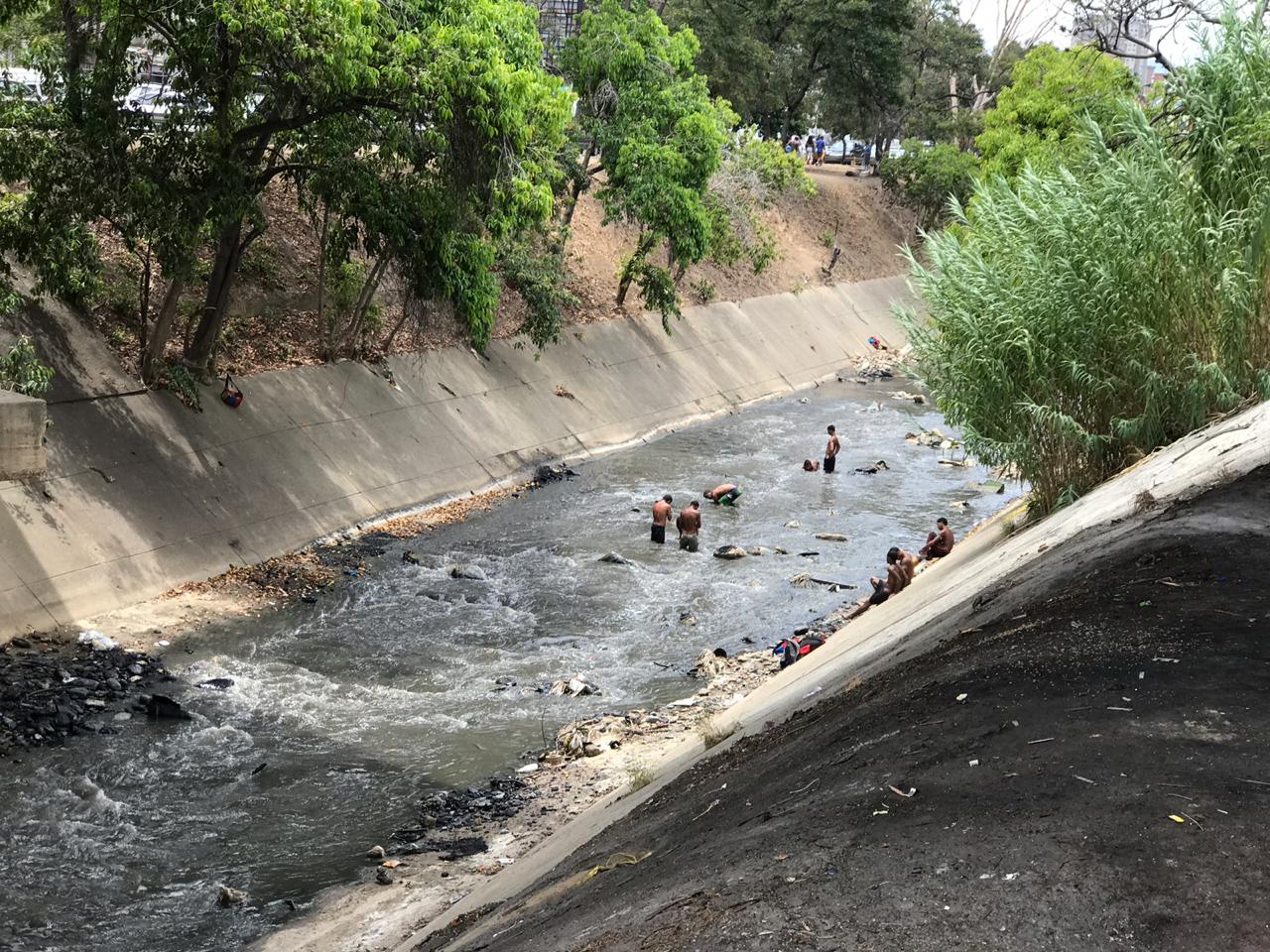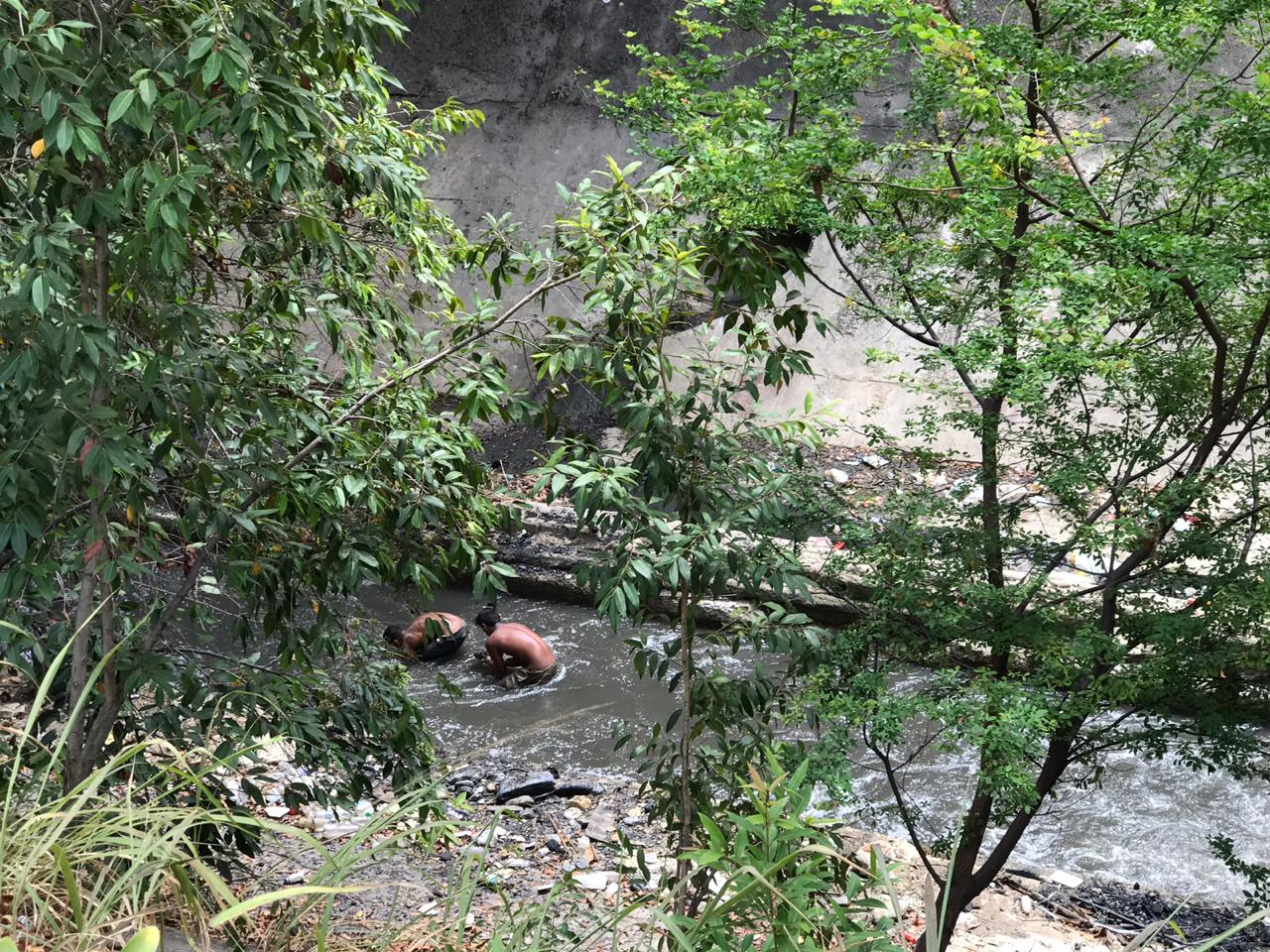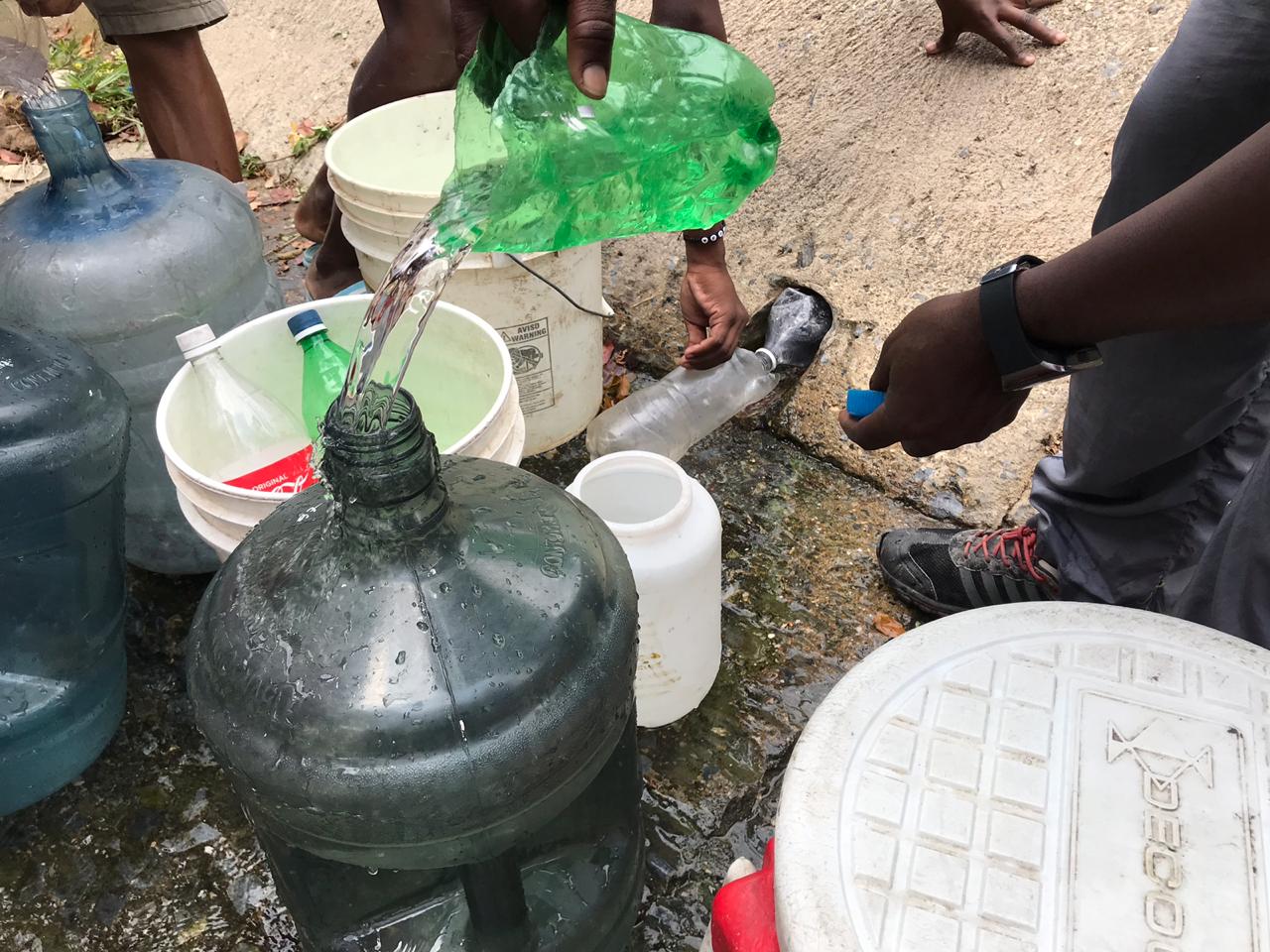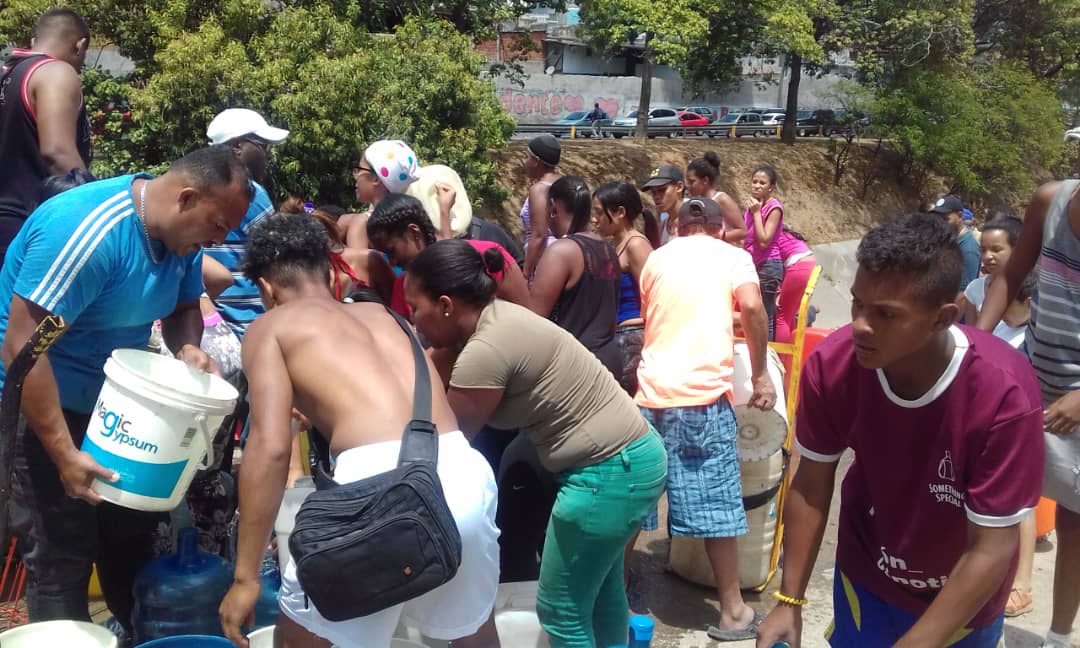Getting Water at the River of Hell
Once a pleasant, clear-water creek, in our times the Guaire is no more than Caracas’ open air sewer. Amid power cuts that took down the water pumping stations that feed Caracas, the people from the slums of San Agustin had to climb down to its embankment to collect water of unknown origin and very dubious safety.


Photos by the author
Luzmery* puts a casserole over her head before talking. She says it’s “to protect my identity because colectivos might come after me later.” She’s had no water since Thursday, March 7th, when the blackout, ongoing in some states, started. She stands in line with an empty bucket, to collect water from “a spring” at the Guaire’s banks.
Luzmery hides her face with a casserole to protect her identity against colectivos.
The inhabitants of San Agustin and Puente Hierro, right in downtown Caracas, had been at it since early in the morning. “We can’t cook, we can’t bathe, we just can’t,” says Heberto*, another local who has been kind of overseeing the operation. Hundreds have come down from one of the poorest communities in the capital, desperate for water. When they saw the pipes were flowing, word spread fast. A queue appeared in less than half an hour.
There are two pipes in the area. The one at the north bank brings barely a trickle of Ávila water. There, Luzmery waits with her bottles. She has three kids and needs to cook. She’s quite clear about who’s responsible. “This is President Maduro’s fault, what we’re suffering. Water, water! And hunger,” she yells to the camera, before turning to check if the bucket’s full.
 At least three dozen people await their turn to fill their buckets. In the span between one and the other, Guaire miners can be seen fishing for jewels to make the day.
At least three dozen people await their turn to fill their buckets. In the span between one and the other, Guaire miners can be seen fishing for jewels to make the day.
The flowing liquid is clear, “cleaner than at home,” the neighbors say. Although it’s certainly flavorless, odorless and transparent, more in accordance with what we learned at school, the truth is that its course through the city’s groundwater table pollutes it. However, Luzmery says that she’s going to boil it and won’t use it for drinking, but for cooking what little she’s got left after three days of black armageddon.
The southern pipe flows stronger. It’s right behind the headquarters of the Scientific Police (CICPC). At least three dozen people await their turn to fill their buckets. In the span between one and the other, Guaire miners can be seen fishing for jewels to make the day. Some even play among them in the water. The drop in the river’s level brought them a wooden door that they plan to sell to buy cigarettes.
 The cry of “¡Viva Chávez!” announces the arrival of colectivos. But the paramilitary squad doesn’t stop.
The cry of “¡Viva Chávez!” announces the arrival of colectivos. But the paramilitary squad doesn’t stop.
Nobody knows exactly where the pipe’s water comes from. All they know is that it’s not from the Ávila. A neighbor says that it comes from a well that has always been at that level of the freeway. They are welcomed by two stones hitting the helmet. “We don’t want any press!”, all the people in the freeway scream. Those below, however, want to tell us what’s happening. The arguments between both factions are endless. Not even the arrival of a TV camera stopped it. Meanwhile, we manage to get a couple of pictures before the stones fly again.
 Nobody knows exactly where the pipe’s water comes from. All they know is that it’s not from the Ávila.
Nobody knows exactly where the pipe’s water comes from. All they know is that it’s not from the Ávila.
Some neighbors went further, to the exit of the Anauco gorge, near Parque Central. The water also looked clear, but “it burned the hands.” That’s why they didn’t leave that area. The scene repeats in El Paraiso, a few kilometers southwest, except that in there, in the absence of a source, people decided to break the pipe. Not much water comes from it, though.
The cry of “¡Viva Chávez!” announces the arrival of colectivos. But the paramilitary squad doesn’t stop. They’re heading to Jardín Botánico, where the neighbors decided to block the Francisco Fajardo freeway. Meanwhile, a few children who got tired of standing in the southern line push a cart across an array of pipes that links both banks over the river, because “we don’t cross” the Guaire, they don’t dare to walk the river across, even though they’re taking water from the pipes discharging into it, to cook and even to bathe.
Caracas Chronicles is 100% reader-supported.
We’ve been able to hang on for 22 years in one of the craziest media landscapes in the world. We’ve seen different media outlets in Venezuela (and abroad) closing shop, something we’re looking to avoid at all costs. Your collaboration goes a long way in helping us weather the storm.
Donate





